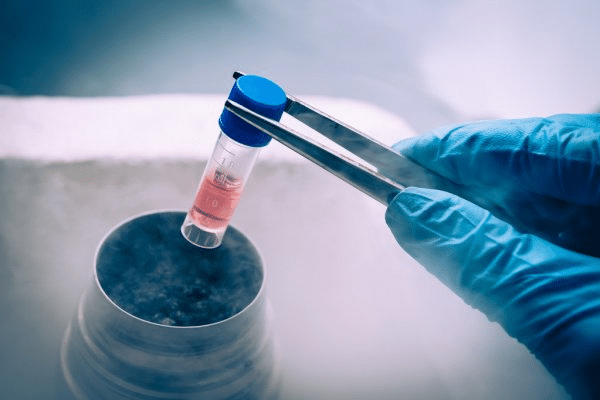Private Umbilical Cord Blood Banking
Private banks work much differently than public cord blood banks. In private cord blood banks, parents pay to have their baby’s cord blood banked for their future use or a family member in need. The cost of private cord blood banking depends on the cord blood bank. A private bank is an excellent choice for many family members with genetic diseases. Storing your baby’s cord blood at a private bank could be used to treat future conditions using your baby’s stem cell tissue and stem cells from umbilical cord blood.
Public Umbilical Cord Blood Banking
In public cord blood banking, your baby’s cord blood is donated to a cord blood bank and can store cord blood for anyone who needs it during a transplant. Your baby’s cord blood and their stem cells stored in a public cord blood bank may also be used for medical research.
Donating your baby’s cord blood stem cells is free, and public cord blood banks pay for the collection and storage process. When parents donate their baby’s cord blood stem cells, they sign away any rights to it. In this case, the cord blood bank owns the baby’s cord blood and associated stem cells.
Public cord blood banks have to meet specific eligibility requirements. If you’re healthy and have only one baby, a donation is likely. However, not everyone is eligible, and donations can be rejected.












